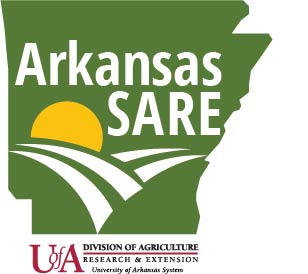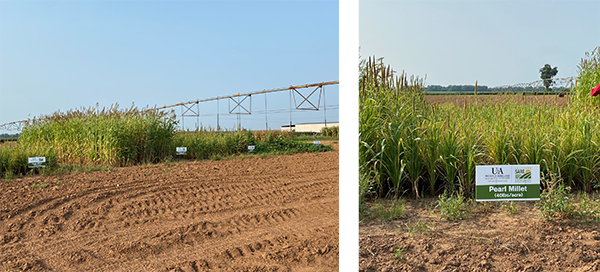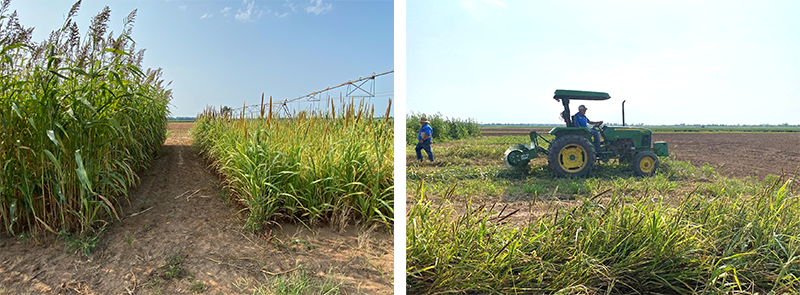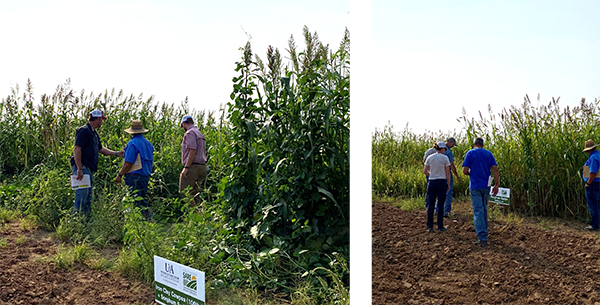Commercial Horticulture

AR SARE Program Hosts Cover Crop Training for County Agents
Earlier this month, the Arkansas SARE team held a cover crop in-service training for county agents at the Vegetable Research Station in Kibler, Arkansas. The training included a summer cover crop demonstration showing the differences between single species and various mixes and the impact of seeding rates on crop establishment and weed control.

Led by Horticulture Production Specialist Dr. Amanda McWhirt, agents learned about summer cover crop selection, cover crop planting, and termination. The training provided agents with the opportunity to see firsthand the differences in cover crop species and different methods of termination were demonstrated. The demo also showed how cover crop mixes versus single species respond to mowing or roller crimping were observed.

Staff at the vegetable station provided the group with a live demonstrations of roller crimping, mowing, and tilling in cover crops as shown in the video below.
When asked, the agents stated that they found the training very useful. A few mentioned how they appreciated being able to see what the cover crops looked like and watching the termination demonstrations. These trainings also provide the SARE team the opportunity to receive feedback from the attendees on what topics they would like more information on for future trainings. Overall, the agents found that the training increased their confidence in answering questions related to cover crops and recommending their use in fruit and vegetable systems.

Our goal with hosting these trainings is to provide extension agents and other ag professionals with the information and resources they need in order to increase the adoption of these sustainable practices among the producers in their counties.

Special thank you to the Southern SARE grant program for providing the funding for this agent training.
